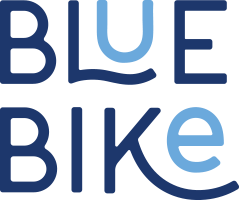#EndWhiteSilence: Put your money where your mouth is
I hear all the time “donate, donate, donate,” as if that is the solution to ending white supremacy culture.
Well, shit. Maybe it is.
From “The Case for Reparations,” I’ve thought that it’s pretty fucking obvious that money and generational wealth was withheld from POC communities by white supremacist policies.
How do we fix that?
White people see this as more taxes. More out of their paychecks. Less for their kids. Smaller cars, houses, budgets, wardrobes. Fewer vacations and dinners out. White people see the very idea of reparations as a tax on them for something their ancestors created.
My dad was like, “When is it my turn to get free money?”
I explained to him he should go fuck right off. And he did listen to me. He read the Ta-Nehisi Coates piece.
And then we approached it again.
Blue-collar or poor white Americans are especially sensitive to this issue. It’s like, as first-time solidly middle class white Americans like myself, remember what it was like just two generations ago when “our people” were Texas sharecroppers, white trash, hungry, and poor.
We know poverty, and we do not want to go back there.
But we use that excuse to talk about “equality” or that it’s not about race, it’s about socioeconomics. Reverse racism. Doing “the best for our kids.”
Truth is, even the poorest white people still have an advantage of just being white.
A haircut and a nice pantsuit, and we can immediately belong in the lobby bar of the Fontainebleau on Miami Beach.
You know how I know? Because I’ve walked right up in that shit, sat down, ordered a drink, and had a member of the 1% eating out of my hand by the end of the night.
Zero-sum-myth
All of this is part of the idea that there are a limited amount of resources in the universe and we need to protect and guard our small share.
That’s false. Our economic principle of capitalism is centered on “unlimited growth.” We believe that year-on-year growth indefinitely is possible, and that’s what we expect from the banking system.
The truth is what Ibram X. Kendi speaks about during his conversation with Brené Brown - this is about power. People in power, historically white men, have used that power to ensure poor white people do not see their own poverty as systemic. If they did, they would also demand systemic change.
People without power need universal health care, living wages, good schools, a safety net. White people without power somehow vote against those things because they feel like the “others” will abuse the services and they won’t see any benefit. Or worse, that they don’t need that kind of government support because they’re still bootstrapping toward the American dream.
It’s all a systemic problem in a system created and reinforced by those that hold power.
However, if the powerful demand that economic growth goes on forever to continue to amass money and more power, then why can’t opportunities expand, too?
More of everything. More to share. More good jobs, more good schools, more love.
It’s true that means that we may "live with less” in terms of consumption behaviors because we don’t want to flood the ecosystem with shitty plastic toys and bullshit throwaway clothing and disgusting, crowded tourist hoards.
POC people have lives without a lot of my “comforts” for centuries, I know I can learn to do without a lot of things.
In fact, after the pandemic, I see how truly little I need to feel whole, worthy, loved, and full of joy.
Fear of poverty is real. Using POC to maintain your material status is wrong.
My fear of poverty and hunger and backsliding to the economically fragile place of my parents and grandparents is real. The feeling of fear is always real.
But I can be privileged and afraid. I can have less and have so much more.
I am still a part of the most powerful group in American history. I have very little chance of being hungry on the street. I can still likely convince someone to care for me and feed me and my daughter if my life implodes. I have accumulated savings, education, skills, friendships, and confidence. My healthcare is good.
I’m working every day on re-writing my money story from one of fear and scarcity to one of abundance and generosity. Others like me - financially stable, educated, experienced - may want to consider doing the same.
I’m still in the process of calculating:
“How much” of my income can I donate without causing myself pain through fear and stress about paying my obligations?
How I can simply spend my discretionary income in a more equitable way (patronizing POC/Q businesses, using Official Black Wall Street or WeBuyBlack.com, desegregating my bookshelf/Netflix/Spotify)?
How I can market and offer my services at an equitable rate to POC/Q groups who could benefit from my professional skill set?
In the meantime, I’m donating, investing, educating.
I don’t know all the answers right now, but I know it’s a life and perspective change.
I’m working to “pivot” my life and business away from the values of the patriarchal economy to the values of the feminine economy, and making sure privilege is always a factor in my life’s “total cost accounting.”*
*Total cost accounting is a principle mostly used in sustainability that is about putting a dollar value on everything - your words, your time, your behaviors, your dollars, your resources, your skills, your risks - and then making all of your decisions based on all of these factors.

